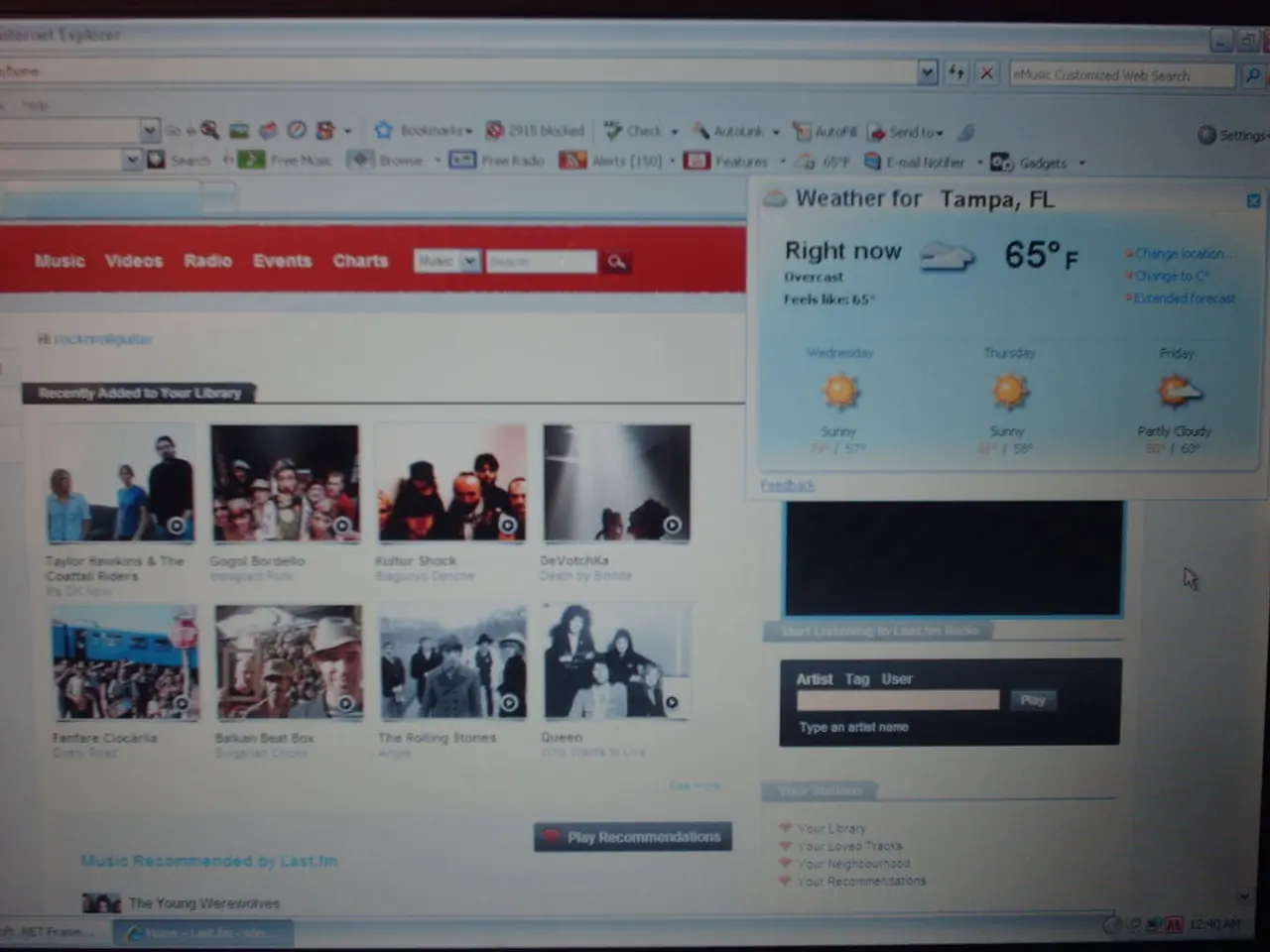NB-IoT's Impact on Various Sectors: Exploring 10 Practical Applications and Advantages
Narrowband Internet of Things (NB-IoT), a low-power wide area network technology, is poised to revolutionise various sectors with its unique capabilities. Developed by the 3GPP, this technology is designed to enhance cellular data and connectivity, offering numerous benefits for devices with intermittent data transmission.
Transforming Utilities, Logistics, and More
In the realm of utilities, NB-IoT enables remote, real-time monitoring of energy and water consumption through smart meters, reducing manual reading costs, improving billing accuracy, and enhancing outage detection. Smart cities are also leveraging NB-IoT for infrastructure management, monitoring street lighting, environmental sensors, waste management bins, and parking spaces, leading to lower energy consumption, improved public safety, efficient waste collection, and optimised parking management.
In logistics and distribution, NB-IoT facilitates real-time tracking of goods, vehicles, and containers across supply chains, enhancing supply chain transparency, reducing theft/loss, optimising routing, and saving fuel. This technology is also transforming industrial equipment and telecom maintenance by monitoring equipment conditions to anticipate failures, minimising downtime, reducing repair costs, prolonging equipment life, and enabling planned maintenance.
Reshaping Agriculture, Healthcare, and Beyond
NB-IoT is reshaping agriculture by continuously monitoring critical factors like soil moisture, environmental conditions, and crop health, leading to precision farming, improved yield, water conservation, and reduced operational costs. In healthcare, NB-IoT is enabling remote patient monitoring devices and asset tracking in hospitals, improving emergency response, optimising medical equipment usage, and reducing hospital visits.
Environmental monitoring is another area where NB-IoT is making a significant impact, aiding in the prevention of accidents by deploying sensors for air quality, water quality, and weather data collection. NB-IoT is also being utilised in energy management for real-time data on electricity consumption, enhancing energy efficiency and reducing waste.
Overcoming Challenges and Embracing Opportunities
While NB-IoT offers numerous benefits, it also faces technical and regulatory challenges that can impact its deployment. The lack of Voice Over LTE support and the limited data rate pose challenges for applications necessitating frequent updates. However, navigating these barriers requires a strategic approach, which can be resolved by partnering with an experienced IoT development firm like Appinventiv.
The Future of NB-IoT
The future of NB-IoT is bright, with the technology expected to integrate seamlessly with 5G, offering even more robust and energy-efficient solutions. The NB-IoT chipset market was valued at $105.2 million in 2023 and is projected to reach $1.15 billion by 2030, indicative of its exponential growth and innovation.
In conclusion, NB-IoT supports industries by enabling efficient, scalable, and reliable connectivity for diverse applications ranging from smart utilities and cities to logistics and healthcare, driving operational efficiencies, cost reductions, and improved services. With its wide coverage, low power consumption, cost-effectiveness, improved security, and scalability, NB-IoT is set to play a crucial role in the next wave of digital transformation.
Sources: 1. Appinventiv (2025-07-22) 2. Wiliot Ambient IoT (2025-08-04) 3. TS2 Tech Global IoT Market Forecast (2025-07-07) 4. Freeeway IoT SIM Use Cases (2025-08-01) 5. Appinventiv IoT in Telecom (2025-07-17)
- Businesses in the finance industry can invest in NB-IoT to optimize their asset tracking, reduce theft, and improve supply chain efficiency, thereby increasing overall profitability.
- In the realm of education-and-self-development, NB-IoT can be utilized to track student attendance, learning progress, and physical activity, promoting a more personalized and effective learning environment.
- The sports industry can leverage NB-IoT to monitor player performance, equipment conditions, and field maintenance, enabling proactive decision-making and optimizing performance.
- By adopting NB-IoT technology, industries may experience a more efficient digital transformation, capitalizing on technological advancements to streamline operations, enhance services, and stay competitive in the global market.




